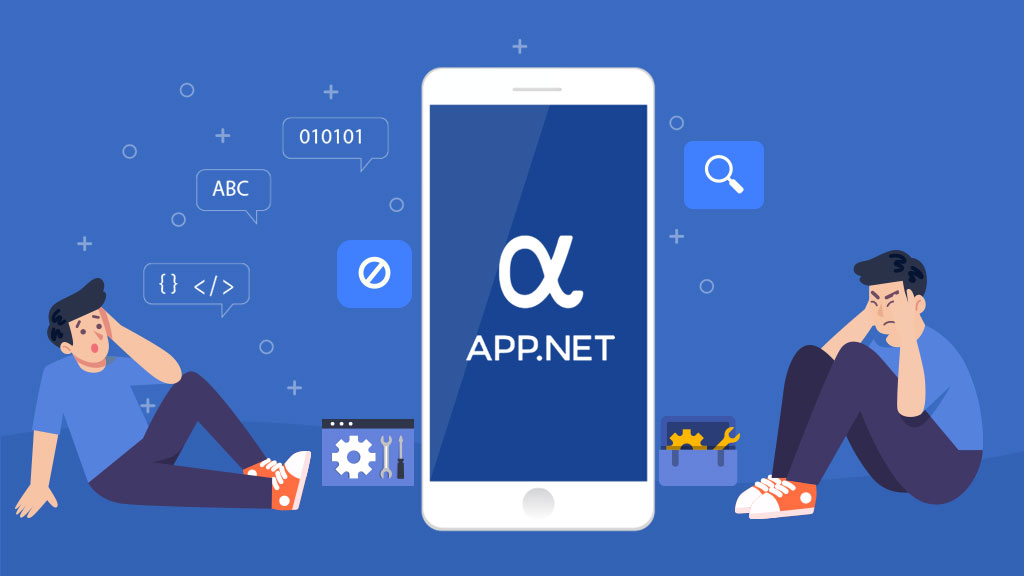Don't miss the chance to work with top 1% of developers.
Sign Up Now and Get FREE CTO-level Consultation.
Confused about your business model?
Request a FREE Business Plan.
Why App.net – an Ad-free Online Social Networking and Micro-Blogging App Failed?
Table of contents

Remember App.net? Well, if you do, you belong to a tiny group of people who haven’t completely forgotten the once-promising social networking and micro-blogging app. App.net or ADN was planned as a social network for applications – think Twitter, but without any ads. It was a platform developed to balance profit and empowerment. It was a brilliant, noble idea that didn’t quite pan out the way it was intended to. What went wrong? Let’s figure out.
The Inception of App.Net
Before it decided to take on industry giants like Twitter and Facebook, App.net existed as a platform for app developers to showcase their creations. The big change occurred on July 13, 2012, when the company announced its decision to change the very purpose of App.net. The new iteration was a social networking service quite similar to Twitter, the major difference being the complete absence of ads.
In a nutshell, App.net was an attempt at creating a platform that allowed users to share data across various apps. The first move was to launch Alpha, a microblogging platform that enabled users to port data such as their friend lists and contacts, images and document files from one app available on the platform to another.
Users could type messages up to 256 characters in length. In the absence of advertising, developer and user subscriptions were the app’s main sources of revenue. Let’s look at the story of App.Net in a few pointers:
App.Net Timeline in a Nutshell
- App.net began crowdfunding in July 2012. The company had approximately 10,000 backers and a target of $500,000. By August 2012, App.net has amassed over 11,000 backers and raised about $750,000.
- App.net launched annotations in September 2012. These allowed the applications to include metadata with the posts to help create more sophisticated features using App.net.
- The platform started a free-trial program in November 2012. The program was invitation based wherein the existing users could invite their friends to use the app. Those that accepted the invitation were offered free services for the first month.
- App.net went ‘freemium’ in February 2013. This meant that users who had a paid plan could invite others to avail a free tier account on the app.
- App.net progressed to reach over 100,000 registered users by May 2013. That same November, the app announced Broadcast – a service that allowed users to send/receive push notifications by means of the app on both Android and iPhone.
- Backer – a service that enabled crowdfunding of features was launched in January 2014. Backer charged no fee on successful open source projects. Proprietary projects that proved to be a success were charged a five percent fee. In addition, all failed projects were exempted from the fee.
- In May 2014, App.net founders revealed they lacked the funds to retain the app’s developmental staff due to poor subscription renewals.
- On March 17, 2017, App.net was shut down and its source code became available on their Github Page.
Also Read: Why YikYak – an Anonymous Social Media App With a Large User Base Failed?
4 Biggest Reasons Behind the Failure of App.Net
1. App.Net Lacked Clear Cut Identity
The developers, as well as the general public, might have understood and appreciated the change of direction from a showcase for app developers to a social networking service.
But, a whole lot of people confused App.net with its very first product – Alpha. While App.net was much like a Twitter clone, a majority of people viewed App.net and Alpha as the same thing. Moreover, it was a Twitter-like service they had to pay for. And with Twitter already an established service they could use free of charge, not many took interest in joining App.net.
2. App.Net Business Model Led to the Creation of a Negative Image
App.net wanted to kick off Twitter’s advertising-based business model. The company’s approach of revenue generation through subscriptions, however, didn’t work out well. When App.net launched Alpha, it came with a subscription fee of $50.
While simply having to pay for a service they could use for free in the form of Twitter kept a lot of people away from Alpha, that wasn’t the only drawback. Since a large number of Alpha’s subscribers came from the ‘well to do white male’ demographics, industry critics labeled the service elitist. The label stuck for the most part and adversely affected people’s opinion of App.net.
3. The Privacy First Approach Misfired
One of the ideas behind the creation of App.net was that people should not have to compromise their privacy for using free of charge social networking platforms. Top guns Twitter and Facebook earn revenue through advertising and user data is shared with various channels.
App.net founders believed the average social media users will value their privacy more than money and will pick their ad-free paid subscription model over the existing free to use services. That just didn’t happen and App.net ended up with having to shut down services due to dwindling subscription numbers.
4. App.Net Lacked Breakout Apps
We’ve discussed quite a bit about App.net here, and yet we’ve only mentioned just a couple of its offerings. The reason we haven’t brought up other popular App.net apps is – there are no other popular App.net apps!
The founders strongly believed that the apps built using their platform will create their own following that will boost the company’s overall subscriptions. And App.net did indeed find favor with developers’ community for a while, with plenty of developers committing to creating apps for the open-source platform.
None of those apps, however, gained the kind of recognition or acclaim that App.net founders had expected. In the end, even the most dedicated of developers jumped off the App.net bandwagon.
Now that you know why this social networking app failed – don’t repeat its mistakes. If you are planning to make a social networking app, have a look at how successful social media apps like Instagram work.
Wrapping Up
Success or failure, there’s a lesson to be learned from every endeavor. In case of App.net, the lesson is straightforward – even the most brilliant of ideas will falter without adequate backing up. App.net took an idealistic approach that contrasted with the realities of the business world.
The app tried to break the mold and provide an alternative to the advertising-based business model but it wasn’t equipped to deliver the kind of services needed to create a big enough following to succeed.
Have a business idea of your own? Don’t follow in the footsteps of App.net. Consult industry experts, evaluate the practical applicability and sustenance quotient of your idea before taking the plunge!
Planning to Create a Social Media App? Talk to Our Experts!
Rate this article!
(2 ratings, average: 5.00 out of 5)
Join 60,000+ Subscribers
Get the weekly updates on the newest brand stories, business models and technology right in your inbox.

Humane yet subtle, Naiya is a girl full of ideas about almost everything. After earning a bachelor’s degree in computer science and engineering, she decided to merge her technical knowledge with her passion for writing – to accomplish something interesting with the fusion. Her write-ups are usually based on technology, mobile apps, and mobile development platforms to help people utilize the mobile world in an efficient way. Besides writing, you can find her making dance videos on Bollywood songs in a corner.

App Monetization Strategies: How to Make Money From an App?
Your app can draw revenue in many ways. All you need to figure out is suitable strategies that best fit your content, your audience, and your needs. This eGuide will put light on the same.
Download Now!Have a Digital Solution ? Don’t Let It Fail.
Make your solutions future ready by using the right tech stack.

















